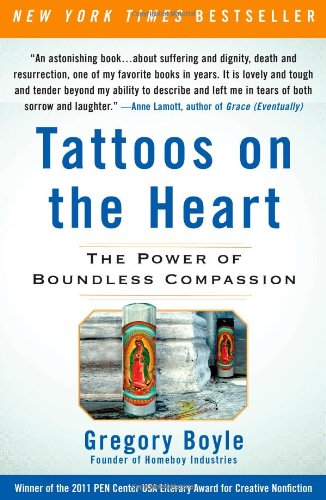Our three week old daughter, Sarah, has colic. No one –
including doctors and health visitors - seems to quite know what colic really
is; a miscellaneous discomfort vaguely connected to trapped wind. It is
horrible to watch. When she feeds she screws up her tiny little face, arches
her back, writhes and then – of course – screams. And screams, and screams and
screams. On Monday she screamed for three hours. I should have swallowed my
pride and rung any of the wonderful parents I know admitting defeat and bidding
for their help, but fierce independence kicked in and, instead, I simply joined
Sarah and sat on the floor and cried. I cried because she was crying. I cried
because she was in pain. I cried because I couldn’t make it stop. And because
her screech was so loud and so persistent that I thought the neighbours might
ring Social Services.
I have struggled with irritable bowels for nearly a
decade. Whilst in pain on the loo in the early hours of the morning, I have
often questioned why God doesn’t heal me. I have shouted and ranted and raved
at him. I have given him the silent treatment. I have been bitter and
resentful. But these past few days, I feel like God has spoken something new.
In the middle of the night, as Sarah has cried and writhed and I have wanted
nothing more than to hide under the covers and go back to sleep, God has
shifted something within me: I have sat, remarkably calmly, with my daughter,
praying for relief from the pain in her bowels. I have massaged her tummy
gently, looked at her tiny, red, screwed-up face with tenderness and thought, I know. I know what that feels like. I
know what it is to be frustrated and uncomfortable and to not be able to make
it right. Whereas on Monday I felt a deep frustration and anger welling up from
the core of my being, instead I have been overcome with love for her. No every
time. Not every cry. But more often than not, I have felt what I want to call
compassion.
I am not quite sure what compassion is. I don’t think
it’s just feeling someone else’s pain. I think it’s something to do with
sitting with someone in their pain, with choosing to align yourself with the
discomfort of others which isn’t quite the same as trying to fix it. I have not
been able to fix Sarah’s colic. Sometimes no amount of burping, massaging,
walking, patting will do the trick and we just sit together, waiting it out
till it passes.
In Gregory Boyle’s astonishing memoir about his work with gang members in Los Angeles, Tattoos on the Heart, Boyle recounts a conversation with a bunch of teenage inmates about the distinction between sympathy, empathy and compassion. The class go through some examples of the first two, but are silenced by the latter until one inmate says, “Compassion – that’s sumthin’ altogether different. Cause that’s what Jesus did. I mean…Compassion…IS…God.”
 I’m not trying to suggest that my own bleary-eyed actions
at 4am are the same as the kind of compassion that Jesus shows us. Far from it.
But Jesus, in some sense, is only able to have genuine compassion on the people
that he meets because he comes close to them. Compassion doesn’t work from a
distance. It’s messier than that. If I didn’t know what it was to struggle with
bowel pain, it would be hard to share Sarah’s pain and sit with her in it.
Similarly – perhaps – Jesus’ compassion for humanity can only be so beautiful
and so full because he becomes one of us. He comes to sit with us.
I’m not trying to suggest that my own bleary-eyed actions
at 4am are the same as the kind of compassion that Jesus shows us. Far from it.
But Jesus, in some sense, is only able to have genuine compassion on the people
that he meets because he comes close to them. Compassion doesn’t work from a
distance. It’s messier than that. If I didn’t know what it was to struggle with
bowel pain, it would be hard to share Sarah’s pain and sit with her in it.
Similarly – perhaps – Jesus’ compassion for humanity can only be so beautiful
and so full because he becomes one of us. He comes to sit with us.
Boyle puts it like this, “Jesus was not a man for
others. He was one with others. There
is the world of difference in that. Jesus didn’t seek the rights of lepers. He touched the leper even before he got
around to curing him. He didn’t champion the cause of the outcast. He was the outcast…the strategy of Jesus is
not centred in taking the right stand on issues, but rather in standing in the
right place – with the outcast and those relegated to the margins…the Beatitudes
is not a spirituality after all. It’s a geography. It tells us where to stand.
Compassion isn’t about feeling the pain of others; it’s about bringing them in
towards yourself.”
This is
altogether more challenging than simply recognising and feeling someone else’s
pain; it means we sit with them in the midst of it. To be compassionate as God
is compassionate is, as Boyle puts it, a question of geography. With whom do we
align ourselves? Where are we standing? Do we watch from a distance and comment
on what it what someone’s burdens might be like (sympathy), acknowledge that we
have had a similar burden ourselves and thus know what it is like (empathy), or
do we do the Jesus thing, the compassion thing, the sumthin’ else altogether?
No comments:
Post a Comment